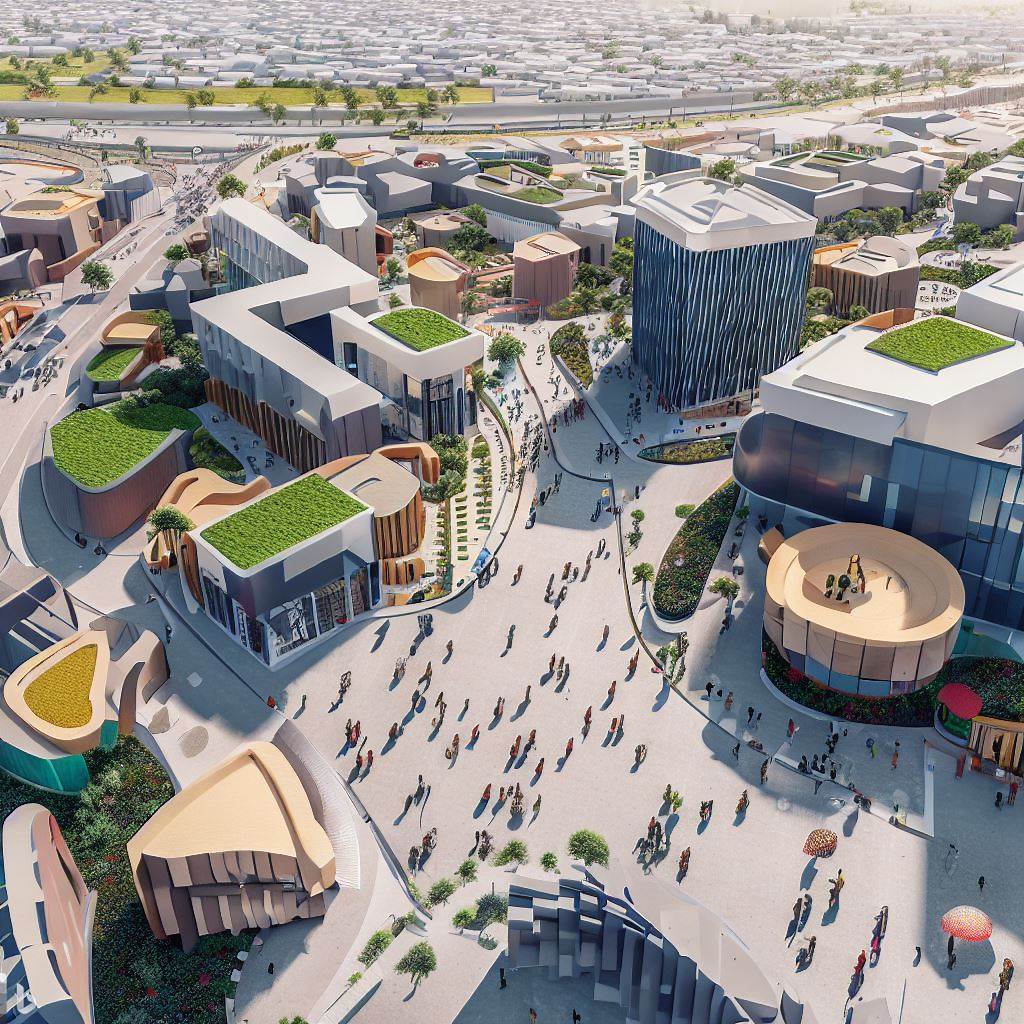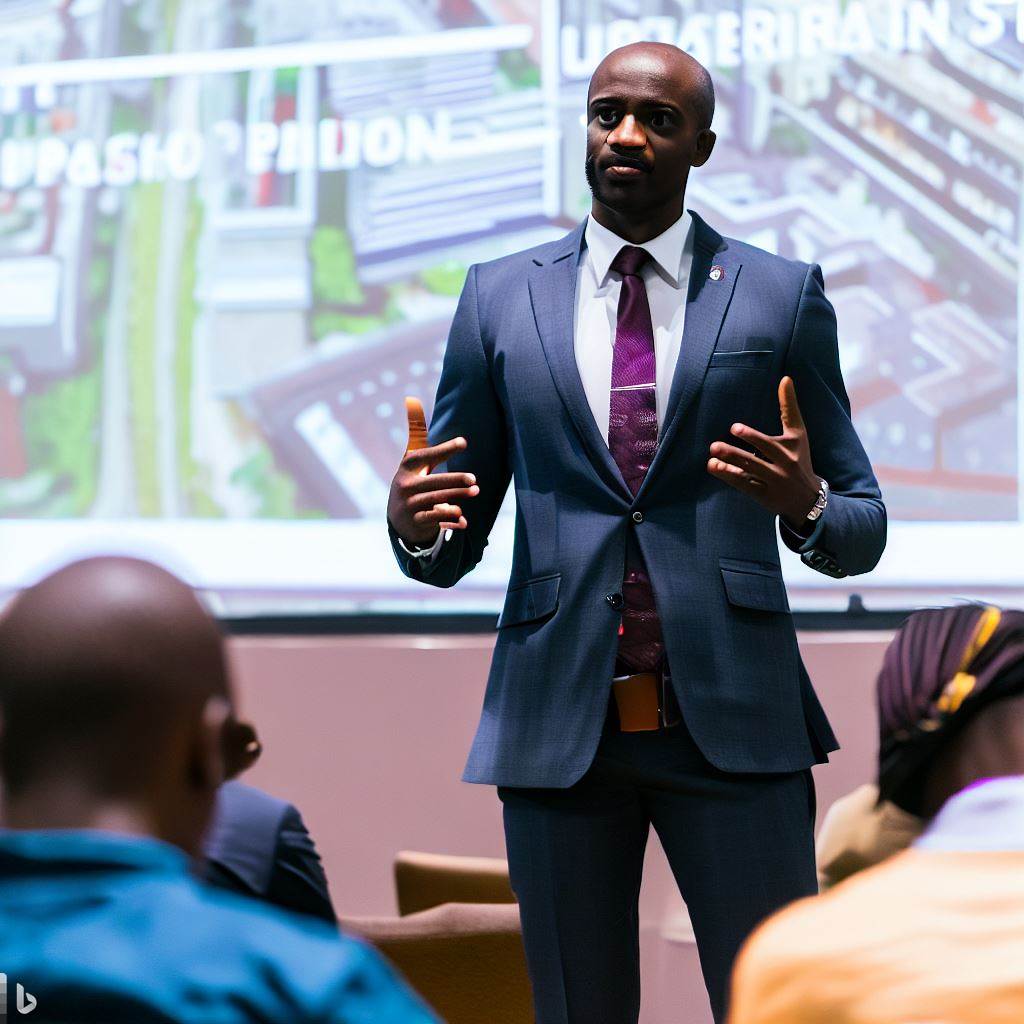Introduction
Urban planning is the process of organizing, designing, and managing urban areas to ensure sustainable development and efficient use of resources.
In Nigeria, urban planning is crucial due to rapid population growth and urbanization.
This blog post aims to delve into the top urban planning projects in Nigeria, exploring their features and impact on urban development.
Overview of Urban Planning in Nigeria
Nigeria, a country in West Africa, has a rich history of urban planning. Urbanization began during the colonial era.
The city of Lagos was the first major urban planning project in Nigeria. It was designed by British colonial administrators in the early 20th century.
Urban planning in Nigeria was primarily focused on creating efficient and organized cities.
A. Current state of urbanization in the country
Currently, Nigeria is experiencing rapid urbanization, with a significant increase in the population residing in cities. The country’s urban population has grown at an alarming rate in recent years.
This growth is driven by factors such as rural-urban migration and high birth rates. The urbanization rate in Nigeria is one of the highest in Africa.
However, urban planners in Nigeria face numerous challenges in managing this rapid urbanization.
B. Challenges faced by urban planners in Nigeria
- Inadequate infrastructure development is a major challenge.
- The demand for housing, transportation, and basic amenities surpasses the available resources.
- Insufficient funding and corruption in the planning process also hinder effective urban development.
- Inadequate data and planning information further complicate the task of urban planners.
Ways in which this challenges affect urban planners in Nigeria
The challenges mentioned above affect urban planners in Nigeria in various ways.
- They struggle to meet the growing housing needs of the urban population.
- Transportation systems are often congested and inefficient, leading to traffic issues.
- Urban planners also face difficulties in providing essential services such as water and electricity.
- Environmental sustainability is a concern due to inadequate waste management and pollution.
Efforts to Improve Urban Areas
Despite these challenges, urban planners in Nigeria continue their efforts to improve urban areas.
- They aim to create sustainable and inclusive cities that cater to the needs of all residents.
- Urban renewal projects are being implemented to upgrade existing infrastructure.
- Efforts are made to incorporate green spaces and promote environmental conservation.
- Public-private partnerships are also being explored to attract investment in urban development.
In short, urban planning in Nigeria has a rich history and is currently facing significant challenges due to rapid urbanization.
The country’s urban population is growing at an alarming rate. Challenges such as inadequate infrastructure and funding, corruption, and insufficient data hinder effective urban development.
Despite these challenges, efforts are being made to improve urban areas and create sustainable cities in Nigeria.
Urban planners are working towards providing better housing, transportation, and services to meet the needs of the growing population.
Read: Education and Skills Needed for Urban Planning in Nigeria
Top Urban Planning Projects in Nigeria
A. Project 1: Eko Atlantic City
- The project is located in Lagos, Nigeria and aims to transform a reclaimed stretch of land into a modern, sustainable, and vibrant city hub.
- The objectives of the project are to create a world-class urban center that offers premium residential, commercial, and recreational spaces while mitigating flooding risks and promoting environmental sustainability.
- Innovative urban planning strategies used in this project include integrated water management systems, innovative waste disposal methods, and mixed-use zoning that fosters walk-ability and community interaction.
B. Project 2: Asokoro City
- The project is located in Abuja, Nigeria and aims to transform the landscape of urban living.
- The objectives of the project are to create a sustainable and modern city center that offers luxury residences, state-of-the-art commercial spaces, and vibrant recreational areas.
- Innovative urban planning strategies used in this project include smart infrastructure integration, green space optimization, and mixed-use zoning to ensure a seamless blend of work, leisure, and residential areas.
C. Project 3: Rainbow Town
- The project is located in Port Harcourt, a bustling city known for its energy industry and vibrant culture, and aims to transform a previously underdeveloped area into a modern urban hub.
- The objectives of the project are to create a sustainable community that balances residential, commercial, and recreational spaces, to promote green living and eco-friendly practices, and to enhance the overall quality of life for residents.
- Innovative urban planning strategies used in this project include integrated green spaces that encourage outdoor activities and social interactions, mixed-use zoning that promotes walkability and reduces commuting, and smart technology integration for efficient waste management and energy consumption.
- Rainbow Town is poised to redefine urban living in Port Harcourt by creating a harmonious blend of modern amenities and nature-inspired design elements, fostering a sense of community and belonging, and setting a benchmark for sustainable urban development in Nigeria.
D. Project 4: Amen Estate
- The project is located in Lagos and aims to transform a former industrial area into a vibrant mixed-use community.
- The objectives of the project are to create a sustainable urban environment that integrates residential, commercial, and recreational spaces, while also promoting local economic growth and preserving green spaces.
- Innovative urban planning strategies used in this project include implementing a transit-oriented development approach to reduce traffic congestion, incorporating green building standards for energy efficiency, and designing walkable neighborhoods with accessible amenities.
Read: Demand and Job Prospects for Urban Planners in Nigeria
Impacts of Urban Planning Projects in Nigeria
A. Positive impacts of the top urban planning projects
- Improved infrastructure: Urban planning projects in Nigeria have led to the development of better roads, bridges, and utilities.
- Enhanced mobility: These projects have improved transportation systems, reducing traffic congestion and travel time.
- Economic growth: Urban planning projects attract investments, create employment opportunities, and stimulate economic development.
- Environmental sustainability: Planned urban areas incorporate green spaces, conservation areas, and sustainable building practices.
- Social integration: These projects promote inclusivity, diversity, and social cohesion among residents.
- Access to basic services: Urban planning projects ensure that residents have access to essential services like healthcare, education, and public facilities.
- Improved security: Planned areas have enhanced security measures, reducing crime rates and ensuring a safer living environment.
B. Contribution to sustainable development
- Reduced environmental impact: Urban planning projects focus on minimizing pollution, preserving natural resources, and promoting energy efficiency.
- Efficient land use: These projects utilize land resources effectively, preventing urban sprawl and promoting compact and walkable neighborhoods.
- Promotion of public transportation: Planned areas prioritize public transportation systems, reducing reliance on private vehicles and decreasing carbon emissions.
- Promotion of green spaces: Urban planning projects create parks, gardens, and recreational areas, enhancing the well-being of residents and fostering a sustainable environment.
- Promotion of mixed-use development: These projects encourage a mix of residential, commercial, and recreational areas, reducing the need for long commutes and promoting a vibrant local economy.
Read: Dissecting The Architect Registration Council of Nigeria
C. Improvement in quality of life for residents in the planned areas
- Better housing options: Urban planning projects provide affordable and quality housing, improving living conditions for residents.
- Improved access to resources: Planned areas have better access to essential facilities such as schools, healthcare centers, and markets.
- Enhanced social amenities: These projects facilitate the development of community centers, libraries, and recreational facilities, promoting social interactions and improving residents’ well-being.
- Reduced health risks: Planned areas prioritize sanitation systems, clean water supply, and waste management, minimizing health hazards and improving overall public health.
- Preservation of cultural heritage: Urban planning projects consider the preservation of historical sites and cultural landmarks, maintaining the identity and heritage of the community.
- Enhanced aesthetics: Planned areas focus on architectural design, landscaping, and urban beautification, creating visually appealing and livable spaces for residents.
In fact, urban planning projects in Nigeria have had numerous positive impacts, contributing to sustainable development and improving the quality of life for residents in planned areas.
These projects have transformed infrastructure, enhanced mobility, stimulated economic growth, and promoted social integration.
They have also played a vital role in preserving the environment, promoting sustainable practices, and providing access to basic services.
With their focus on efficient land use, public transportation, and green spaces, these projects have set a foundation for a better future in Nigeria.
Read: Understanding the Roles of Urban Planners in Nigeria

Challenges and Future Perspectives of Urban Planning in Nigeria
A. Ongoing Challenges Faced by Urban Planners in Nigeria
- Inadequate infrastructure: Urban planners in Nigeria face the challenge of limited resources and outdated infrastructure.
- Rapid population growth: Nigeria’s population is growing rapidly, leading to increased pressure on urban areas and a need for effective planning.
- Informal settlements: The existence of unplanned and informal settlements poses a challenge to urban planners in providing adequate infrastructure and services.
- Traffic congestion: Urban areas in Nigeria are experiencing severe traffic congestion, requiring planners to develop effective transportation systems.
- Limited funding: Urban planning projects often face budget constraints in Nigeria, making it difficult to implement comprehensive plans.
B. Importance of Adapting Urban Planning Strategies to Changing Needs
- Flexibility: Urban planners need to adapt their strategies to changing needs to ensure sustainable and resilient urban development.
- Transport accessibility: Adapting urban planning strategies can improve transportation systems and accessibility for all citizens.
- Climate change adaptation: Urban planners must consider the impact of climate change and integrate adaptive strategies into urban development plans.
- Economic growth: Adapting urban planning strategies to changing needs can foster economic growth by promoting investment and job creation.
- Social inclusion: By considering changing needs, urban planners can create inclusive communities that cater to the diverse needs of all residents.
C. Potential Future Projects and Initiatives for Urban Planning in Nigeria
- Affordable housing initiatives: Implementing affordable housing projects can address the housing deficit in urban areas.
- Smart city initiatives: Embracing technological advancements can improve efficiency and sustainability in urban planning.
- Sustainable transportation systems: Developing integrated and eco-friendly transportation systems can reduce traffic congestion and promote greener cities.
- Urban regeneration projects: Revitalizing deteriorating urban areas can improve their livability and attract investment.
- Public participation initiatives: Involving citizens in the planning process can ensure their needs and aspirations are considered.
In essence, urban planners in Nigeria face ongoing challenges such as inadequate infrastructure, rapid population growth, and traffic congestion.
However, adapting urban planning strategies to changing needs is crucial to ensure sustainable development.
Future projects and initiatives, such as affordable housing schemes, smart city initiatives, and sustainable transportation systems, can enhance urban planning in Nigeria and create vibrant and inclusive cities.
Collaboration between government, citizens, and professionals will be essential in addressing these challenges and shaping the future of urban planning in Nigeria.
Read: Becoming an Urban Planner in Nigeria: A Comprehensive Guide
Conclusion
In this blog post, we explored the top urban planning projects in Nigeria, showcasing their importance in shaping the country’s future.
We discussed key projects such as the Eko Atlantic City, Centenary City, and the Lekki Free Trade Zone, highlighting their impact on economic growth, job creation, and sustainable development.
Urban planning projects in Nigeria play a crucial role in addressing infrastructure challenges, providing housing solutions, and fostering social inclusion.
They also contribute to attracting foreign investments, promoting tourism, and enhancing the overall quality of life for Nigerians.
To stay informed on future developments in urban planning in Nigeria, it is essential to follow local news, government initiatives, and engage with relevant organizations.
With continued investment and proper implementation of these projects, Nigeria has the potential to become a model for urban development in Africa and beyond.
Let us support and celebrate the visionary urban planning projects in Nigeria as they shape a brighter future for the nation.




